
Johnson talks priorities as new UW Population Health Institute leader

Photo courtesy of UW
Sheri Johnson, the new director for the University of Wisconsin Population Health Institute, wants to improve health equity in the state.
Johnson, a clinical child psychologist, joined the institute this month from Medical College of Wisconsin where she was an associate professor of pediatrics. She was also associate director for the Center for the Advancement of Underserved Children.
“All of my work has some connection to protecting children from adversity and building supports and resilience for families and communities,” she said. “I hope to continue to beat that drum here.”
Johnson recently spoke to Wisconsin Health News about her new role. Edited excerpts are below.
WHN: Why did you decide to join the UW Population Health Institute?
SJ: For me, the mission of the Population Health Institute, which is translating research for policy and practice, is really extremely compelling. We have a lot of existing knowledge that can be used to advance health and a lot of opportunities to partner with local, state and national leaders to catalyze improvement. I was really excited about the opportunity to join a group of people who were taking what we already know and trying to help implement it in the real world at multiple levels. We have a suite of tools and products that have been created over the course of the many years that the Population Health Institute has been up and running, things like What Works for Health, the County Health Rankings & Roadmaps, the Evidence-Based Health Policy Project. All of these in different ways provide both policymakers and members of the public and private sectors with really timely, high quality, evidence-based information for decision-making, which is really sort of the core of what we’re doing to translate data into action. In addition, we have an evaluation research group. Those folks work in partnership with communities, tribes and governmental organizations who are really also creating the evidence. So they’ve got ideas, expertise and lived experience that they bring to the table and then they partner with our evaluation experts to develop and implement and then evaluate the outcomes of programs, policy and systems changes to promote health. This is a job of a lifetime for me.
WHN: What are your priorities?
SJ: My priority is to work with the leaders here at the Institute and the stakeholders as well, and those are both academics and governmental leaders but also residents and communities around the state, to deepen and accelerate our work related to health equity. By that I mean, we all benefit when we can ensure that everyone has the opportunity to be as healthy as possible, that they have the opportunity to make contributions and to feel valued and included. In order to really advance and accelerate that work, we have to continue to work across a range of sectors because health is driven largely by things that occur outside of the healthcare system. We have to continue to find ways and to improve our work in terms of engaging business and education sectors, criminal justice, transportation, natural resources, if we really want to help reach this goal of equity. I think there’s common ground to build on already. Urban and rural residents want to have high quality educational opportunities available for children, people from different ethnic and cultural groups want to find ways to increase employment opportunities. So there’s common ground to work on and I think we have the opportunity to help people gain the tools that are necessary to make those policy, system changes.
WHN: What are the challenges and issues you see with health equity in the state?
SJ: If you look at some of the reports that have been released by the Population Health Institute, we get low marks when it comes to addressing health disparities. In particular, there are large differences in the grades that we get as a state for health outcomes and quality of life when it comes to people who have a high school education or less, people who are living in Milwaukee County or African-American people in Wisconsin or American Indians and both for younger and older men. We can use one of the products of the Institute to really hone in on where are these gaps in equity occurring and then also use tools. I think we need to build additional tools and resources to help people get to the action.
WHN: Can you give an example of what you’d like to build?
SJ: We have some early workaround Health in All Policies
through the MATCH group. I think we have room to expand that so that communities around the state can understand that transportation policy is health policy. So if people living in rural communities don’t have good transportation access, not just to get to the doctor but to get to their job, then we’re going to have inequitable outcomes. So Health in All Policies is one example of a tool and a set of knowledge and expertise that I think the Institute can disseminate more broadly around the state to local coalitions and stakeholders so that they can use those skills and resources to advance health. There are also racial equity impact assessments. That’s a skillset that I don’t personally have but I think we can begin to develop amongst our team so we can, through programs like our Population Health Fellowship where we’re helping further train the next generation of public health experts, put these tools in their hands. So when they’re out in the work world, working with partners, they can bring those to the table. I think we also need to look at how we’re funding population health improvement. If we can expand the capacity of people around the state to learn about new ways to use social impact bonds and things like that, then we’re also building the capacity for long-term sustainable change.
WHN: What are some of the major other health challenges that are facing the state?
SJ: In my view, rather than looking at specific health problems – while these are important – like cardiovascular disease or diabetes or sexually transmitted diseases, I think it’s really important to keep the narrative focused also on root causes. So child poverty and adversity I think are the biggest health challenges that we face in Wisconsin and at the national level. We have substantial evidence in the academy that the first five years of life represent a critical and sensitive period of development. That first five years sets the course often for health across the life course. Childhood poverty in Wisconsin in 2017 was 16.3 percent. Children don’t earn money. For me, that means we have to focus on supporting caregivers, families and communities in creating opportunities for social and economic stability. We also have to look at adversity or trauma and the ways in which exposure to trauma in the early life period has long-term impacts for adult health. There’s the behavioral risk factor survey that looked at adverse childhood experiences in Wisconsin from 2011 to 2013. That showed that for Wisconsin adults who report more adverse childhood experiences, which is similar to national data, there are higher rates of depression, increased health risk behaviors, poor general health and chronic health conditions. So if we can figure out a way to really invest more in children in that zero to five year range in particular we’re going to reap the benefits for years to come.
This article first appeared in the Wisconsin Health News daily email newsletter. Sign up for your free trial here.

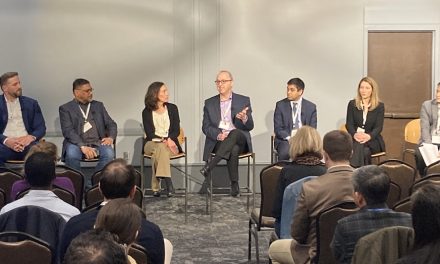


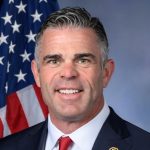








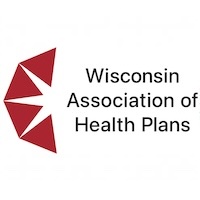






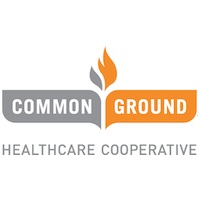
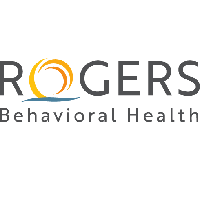







.jpg?bwg=1612548324)

